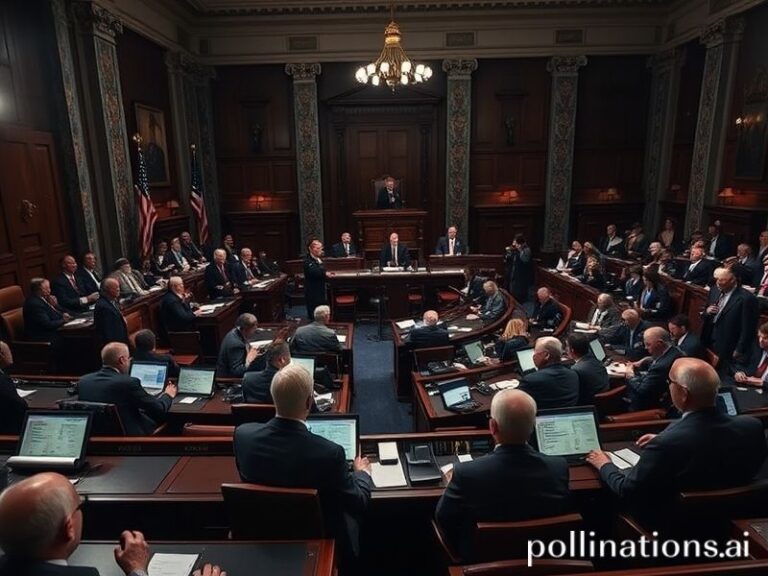chad vs ghana
Chad vs Ghana: A Tale of Two Africas, One IMF, and the Perpetual Search for the Next Miracle
By the time you finish your morning coffee, another development bank will have issued a glossy report announcing that somewhere between the Sahara and the Gulf of Guinea lies the “next frontier of growth.” Never mind that the frontier has been next for three decades; the PowerPoint slides must keep circulating or the interns will revolt. In this long-running tragicomedy, two understudies have recently received fresh top billing: Chad—landlocked, oil-soaked, and perpetually broke—and Ghana—coastal, cocoa-scented, and equally broke but with better Wi-Fi. The international audience, bored by Ukraine fatigue and vaguely guilty about TikTok, has decided this is the rivalry to watch. Cue the popcorn. Gluten-free, of course.
Let us begin with Chad, a country whose name already sounds like the losing side of a Twitter poll. Once upon a 2003 oil pipeline, the World Bank hailed Chad as a “laboratory for good governance,” a phrase ranking just above “military intelligence” in the oxymoron Olympics. The experiment ended predictably: the money evaporated, the president’s motorcade acquired more tinted glass, and the laboratory exploded. Fast-forward to 2024: Chad is trying to restructure its debt with Glencore—because nothing says “development” like negotiating your future with a Swiss commodities house that could buy your entire GDP with its petty-cash drawer. The IMF has dispatched a mission so often that N’Djamena’s hotel receptionists greet them by first name and dietary preference.
Meanwhile, Ghana is the golden child who forgot to do the homework. Blessed with bauxite, cocoa, and the sort of beaches Instagram influencers would sell a kidney for, Ghana nevertheless discovered that global capital markets are only charming until the coupon payment comes due. After defaulting on Eurobonds last year—an act that sent shock waves through every hedge fund named after a Greek god—Accra is now negotiating a $3 billion IMF bailout. The government’s new slogan is “Ghana Beyond Aid,” which is marketing speak for “Ghana Just Before the Next Aid.” The irony is not lost on anyone, least of all the roadside vendors who now price kebabs in dollars, crypto, and small tears.
From a planetary perspective, the Chad-Ghana divergence is less a boxing match than a synchronized face-plant. Both countries are Exhibit A in the modern development paradox: the more the world promises prosperity via extractive industries and sovereign bonds, the faster the ground opens. Commodity traders in Geneva, bondholders in London, and policymakers in Washington all claim to be midwives of African renaissance, yet somehow the baby keeps arriving stillborn. If this were a Netflix series, critics would pan it for repetitive plotlines.
Still, the geostrategic peanut gallery watches rapt. China, having learned that Belt-and-Road sometimes morphs into Debt-and-Groan, now offers Chad solar panels in exchange for future oil—an arrangement known in polite circles as “pre-colonial nostalgia.” France, unwilling to abandon Françafrique even as Parisians protest pension reform, quietly extends military bases like unwanted houseguests. Turkey, fresh from selling drones to both sides of other people’s wars, has opened a new embassy in Accra shaped suspiciously like a shipping container with chandeliers. Somewhere in Ankara, an intern is updating the mission statement to “Ghana: Gateway to Togo.”
The broader significance? Simple. While Western pundits argue whether democracy or autocracy delivers growth faster, both Chad and Ghana illustrate a third option: the Excel-sheet kleptocracy, where progress is measured in press releases and the only sustainable resource is press conferences. In a world addicted to easy narratives, the real takeaway is discomforting: no amount of rebranding can substitute for the boring work of taxation, transparent budgets, and reliable electricity. But those don’t fit in a tweet, so we continue to cheerlead the next miracle, conveniently scheduled right after the commercial break.
Conclusion: Somewhere in the Sahel, a goat herder who has never heard of sovereign spreads wakes up to find French drones overhead and Chinese surveyors underfoot. He may not grasp the finer points of Chad vs Ghana, but he understands instinctively what every bondholder refuses to admit: in the grand casino of global finance, the house always wins, and the house is rarely located in Africa. Until that changes, the only safe bet is that tomorrow’s headlines will recycle today’s promises, only with shinier infographics.







